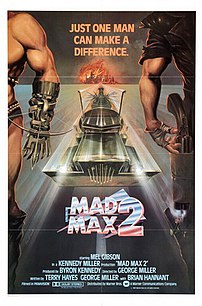Using Return on Marketing Investment to Save Your Assets
 You hear a lot of talk about ROI (Return on Investment) in marketing these days. Especially these days. Many of you may not be as familiar with ROMI (Return on Marketing Investment).ROI is important but often difficult to prove. In an integrated marketing campaign how do you determine which tactic lead to which results? In today’s Web 2.0 World it gets even trickier because the traditional measurements don’t fit the tactics.
You hear a lot of talk about ROI (Return on Investment) in marketing these days. Especially these days. Many of you may not be as familiar with ROMI (Return on Marketing Investment).ROI is important but often difficult to prove. In an integrated marketing campaign how do you determine which tactic lead to which results? In today’s Web 2.0 World it gets even trickier because the traditional measurements don’t fit the tactics.
SOV - Share of Voice
PR uses Share of Voice measurements. For a doohickey company they would look at all the press coverage on doohickey’s and doohickey companies and see how many times their company was mentioned against the overall total coverage. What you want to be able to show is either an increase in coverage and/or that you are getting more coverage than your competitors.
CPM - Cost per Thousand (M of course being the Roman numeral for thousand).
I’m not a big fan of CPM but this is the standard that all media and advertising companies measure on. I’ve even seen advertisers use SOV, but that seems weird since all it really shows is that you spent more money than your competitors.
CTR - Click Through Rate
This is the performance measurement for online advertisers. Display advertisers often couple CPM with CTR. This matrix gives you a slightly better view of performance because it demonstrates how targeted your advertising is and how effective the creative was. But even this is a shallow victory, in my opinion, if no one does anything once they get to your site and most companies can’t effectively track how much of their traffic came from organic or paid and who did what when they got there.
Moving from ROI to ROMI
ROMI is not a perfect fix for social media but I believe it has a clear competitive advantage in today’s economic climate. ROMI takes the approach of looking at your total marketing spend and gaging it’s effectiveness as a whole.
As marketers are looking for ways to stretch their budgets further social media poses a great value propositions. We all know that social media can be much more cost effective than traditional methods but how do you prove it.
Here are some recommended scenarios:
- Instead of paying wire fees for every press release your company does send your release to targeted bloggers in your industry (first be aware of how to pitch bloggers). You can also use new tools like PitchEngine to distribute your release.
- You save on wire fees and possibly agency hourly fees.
- Instead of building a microsite for your next event, build a Facebook page with an accompanying Twitter account . It’s free and easy.
- You save considerable development costs for building a Web page.
- Instead of doing traditional display advertising look at less expensive advertising on social networks or through self service blog ad networks.
- You save on expensive creative development and over priced media buys.
In many cases your traditional ROI measurements might not yield the same results. You’d be hard pressed to get the same CPM numbers. But when you look at the total marketing expense you can see huge savings. Now I’m not saying you need to cut everything you’ve been doing but as budgets get cut you can supplement your marketing dollars with non-traditional cost-saving efforts that are sure to win over your manager.
These are only a few examples, I’m sure you have others. What are you doing to stretch your marketing dollars? Do you have any suggestions I haven’t listed?
Image by Tac Anderson via Flickr
Technorati Tags: advertising, ROI, ROMI, budgets, marketing, Social Networks, Bloggers, blogs,
If you enjoyed this post, make sure you subscribe to my RSS feed!




 Named one of the
Named one of the